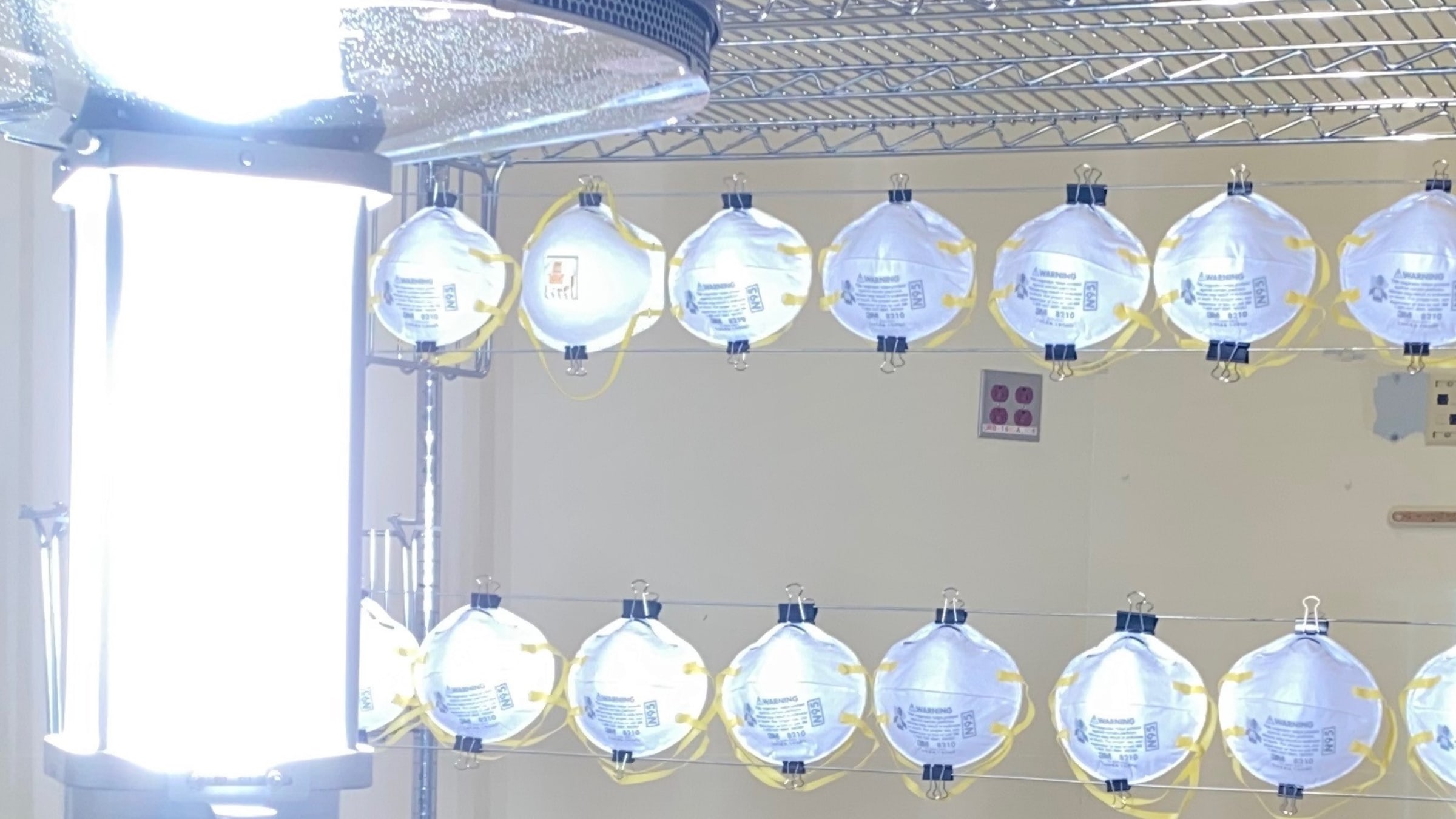Baptist Health Among the First Hospital Systems to Use Robots to Disinfect N95 Masks During COVID-19
The goal of this innovative approach is to preserve N95 masks, which are in short supply throughout the country due to the spread of COVID-19.
Jacksonville, FL

In response to the nationwide shortage of personal protective equipment (PPE) during the COVID-19 crisis, Baptist Health is expanding its use of robotic disinfecting technology to clean and preserve N95 masks, which help team members protect themselves and others from the spread of infectious diseases such as COVID-19. The health system is one of the first in the region to use this approach, an innovative response to a shortage that has impacted hospitals across the U.S.
The LightStrike robots are designed and manufactured by Xenex Disinfection Services and use pulsed xenon ultraviolet (UV) light to quickly deactivate microorganisms and disinfect high-touch surfaces in healthcare facilities. By damaging the DNA of bacteria and viruses, the intense UV light prevents them from multiplying or mutating. Baptist Health already uses LightStrike robots to disinfect patient and operating rooms, and now one robot at each hospital has been set aside specifically for cleaning N95s.
As COVID-19 continues to spread, our teams are working hard to research and implement evidence-based strategies to address projected needs," said Elizabeth Ransom, MD, FACS, executive vice president and chief physician executive at Baptist Health. "Our use of LightStrike robots is just one part of our broader effort to provide the best possible care to all patients."
As the mask cleaning program is rolled out this week, each facility will have a room dedicated to disinfecting the masks, which will be strung along wire shelving, resembling clothes on a clothesline. After a five-minute disinfection cycle, the masks are rotated and then exposed for five minutes on the other side, allowing both their exterior and interior to be decontaminated. Units with high N95 use, such as the COVID-19 units and the emergency departments, are among the first to have their masks cleaned, and there are plans for the program to expand to other departments across the hospital system.
"During an ongoing crisis like the one we are facing now, our health system is applying innovative ideas that are shown to be effective," said David Rice, MD, senior vice president and chief quality officer for Baptist Health. "The use of Xenex robots to disinfect our masks is just one of the ways we are rethinking how we do things so that we can benefit our patients and team members alike."